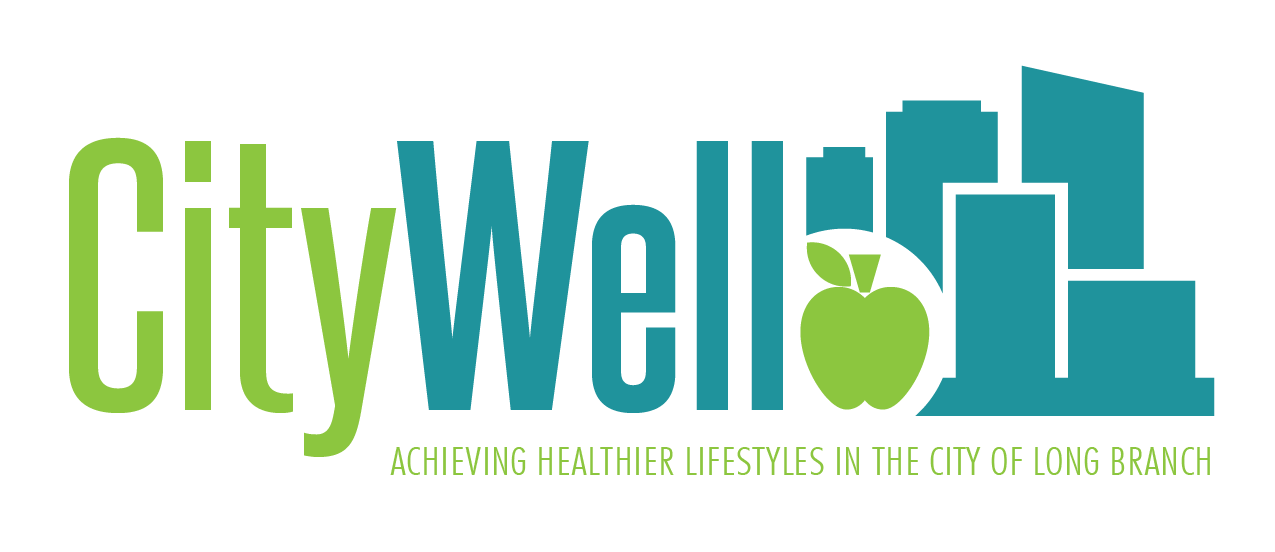 Any reader of my blog or participant in one of my seminars knows how strongly I feel about the need to get away from the “sick care” model that reactively treats people after they become ill.
Any reader of my blog or participant in one of my seminars knows how strongly I feel about the need to get away from the “sick care” model that reactively treats people after they become ill.
If we’re going to reverse the worldwide chronic illness epidemic, we need to adopt a “health care” model that focuses on keeping people well. Every individual needs to become educated so they’re capable of making better decisions on a daily basis about proper nutrition, exercise, and stress modification.
There is no greater example of this approach than the CityWell Municipal Employee Health and Wellness Program, a free resource created to help City of Long Branch employees and their dependents achieve and maintain a state of wellness and live a wellness lifestyle. As Health Educator for CityWell, I’m proud to say that the program has already exceeded expectations in terms of both participation and outcomes.
I wanted to share another CityWell success story as example of how a science-driven approach to wellness can change someone’s life. To protect the patient’s privacy, I’ll refer to her as Caitlin.
Caitlin, who was in her mid-40s, began nutrition counseling in February of 2015. She was 229 pounds. With a body mass index (BMI) of 40.56, she was considered morbidly obese. Caitlin suffered from rheumatoid arthritis, hypertension, acid reflux, irritable bowel syndrome, iron-deficient anemia, and low vitamin D. She also complained of brain fog and the inability to concentrate.
Caitlin was on medication for acid reflux and high blood pressure, which was 158-96 at her initial visit despite the use of medication. She had only received medical treatment in the past and had not tried dietary or lifestyle changes because she didn’t realize that her conditions were related.
Caitlin was unhappy with how she looked and felt frustrated by her inability to lose weight. She wanted to be healthier and thinner and have more energy to do things with her son. Caitlin desperately wanted to break the cycle of chronic pain and medication.
Throughout her care, Caitlin was placed on clinical nutrition protocols designed by Dr Oscar Coetzee, PhD. These protocols are designed to regulate blood sugar, regulate cholesterol production, reduce insulin levels and inflammation, and maintain stable energy. It also contributes to weight loss because it helps to control cravings and delay hunger.
In addition to the dietary protocol, we prescribed nutritional supplements to reduce inflammation caused by rheumatoid arthritis. Because Caitlin had her gall bladder removed 20 years earlier, we prescribed additional supplements to replace the function of the gall bladder, enabling her body to properly break down and absorb fats and fat-soluble vitamins. Finally, Caitlin receive chiropractic care and acupuncture to support her healing process.
After just one month of nutritional counseling, we noticed significant changes. Caitlin went from five or more rheumatoid arthritis flare-ups per month to just one. She stopped taking her acid reflux medication after 20 years and hasn’t experienced any symptoms.
After two months, Caitlin no longer had pain associated with rheumatoid arthritis, and brain fog and concentration issues had been reduced significantly. She enjoyed more energy that allowed her to work out several days per week. She lost 26 pounds, including 18.2 pounds of fat.
After one year, Caitlin’s biometrics had dramatically improved. Her weight dropped from 229 pounds to 164 pounds. Her BMI decreased from 41 to 29. Her body fat percentage decreased 30 percent and her body fat mass decreased 50 percent. Her blood test results showed decreased cholesterol (9.3 percent), HDL (18 percent), triglycerides (49 percent) and glucose (10.2 percent), while her LDL (6 percent) and vitamin D (149 percent) both increased.
Caitlin has told us that this program has turned her life around. Instead of struggling to keep up with her son, he now struggles to keep up with her. Instead of counting calories, she knows how to make smart dietary choices. Caitlin made a permanent lifestyle change and hasn’t felt this well in years.
We’re so proud of Caitlin and all of the folks we’ve been able to help through the CityWell program. My hope is that more cities will follow this wellness model and encourage their employees to take the steps required to feel better, function better, and live as many healthy disease-free years as possible.